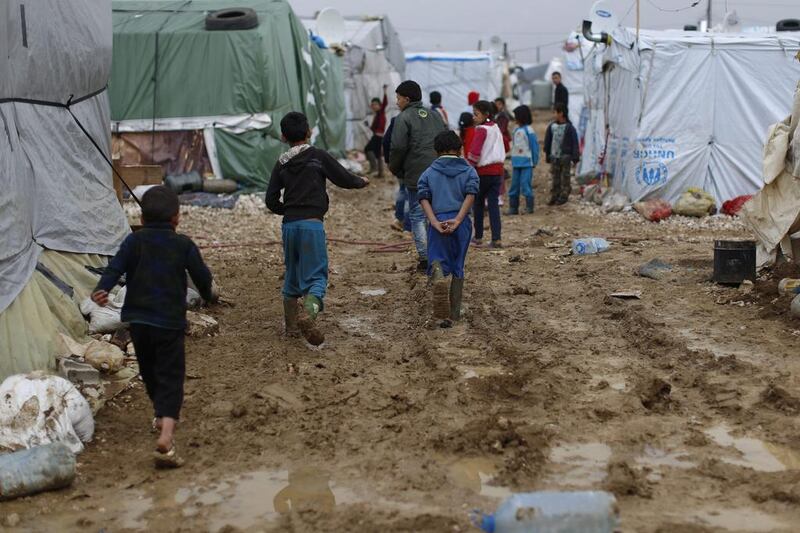london forum
According to media reports, the Syrian refugee issue received a massive shot in the arm last week as world leaders met in London to confront the biggest humanitarian crisis since the end of the Second World War. In fact, a closer look at those reports reveals that some critical factors were not taken into consideration.
While the UN asked for $8 billion (Dh29bn) aid to help Syria and surrounding regions in 2016, the London conference pledged $6bn.
There are about 2,000 camps in Lebanon, where many people have been struggling to pay the rent and utility bills with a monthly $21 allowance – which is meant for food.
Recently I visited one of these camps where I noticed that most people were eating bread and not much else.
I also noticed plastic collected from the streets being burnt in about half of those houses. This was alarming, as the toxic fumes were causing a lot of health problems.
Three old women I met said that they did not qualify for the one-off UN payment for heating their homes during the winter, so they had to resort to burning plastic. All of them had developed lung problems.
The abysmal living conditions are the result of failed policy. Western donors have been funding the refugee programme in recent years in a manner that can be compared to an individual who only drives his car on a Sunday as he can’t afford the cost of fuel. An aid worker said that the amount of donation the UN had been asking for was not adequate. She said that a family needed at least $300 a month to eat and heat their home. Most are getting a fraction of that.
But if more cash is to be allocated to jobs creation and children’s education, that presumably means that the refugees will still be given more cash for food.
However, the London conference remarkably managed to evade the word “food”, which is what people need more than anything else. Those I spoke with at the camp smiled and looked away when I asked them what they ate. “I dream of chicken,” one person responded.
Surely, if the West is serious about its involvement in the Syrian refugee programme it should make food a priority. Donors in London need to visit refugee camps to see for themselves what the priorities should be.
The condition of one camp in Lebanon was so deplorable that local aid workers didn’t bother giving it a name. It just has a number. Anyone who listened to the residents of this camp will only hear tragic tales. Here is an example: a 15-year-old girl, whose mother is trapped in Syria, has to look after her three brothers, even though they bully her. She has no idea if she will ever see her mother. The UN gives her about $100 a month with which she has manage all her expenses – rent, food and utility.
Clearly, she needs more money and the London conference has not helped her. Bringing hope back to these people is about restoring their dignity.
It starts with the provision of the basics such as food and heating.
So what was the London conference about? The answer is simple: politics.
For the West, it’s more of an immigration conundrum than a humanitarian one. For them, it’s more about finding ways to stem the flow of refugees arriving at their southern shores than airdropping food aid on Syrian cities where president Bashar Al Assad is using hunger as a weapon.
The amounts pledged at the conference are nominal compared to what the West would spend on integrating those same people into their societies. Bizarrely, the West doesn’t need the permission of Mr Al Assad when it comes to bombing towns that harbour ISIL, yet it does while dropping aid to starving civilians. So the London conference has done nothing to tackle the root problem of the crisis.
The problems will compound if the condition of Lebanon’s displaced continue to remain the same. The voice of desperation was audible when some people said that they might leave the camp and go to Syria to fight for any group that would pay them – a dire outcome to the arrested development of joined-up thinking on Syria.
Martin Jay is the Beirut correspondent for Deutsche Welle TV
On Twitter: @MartinRJay





